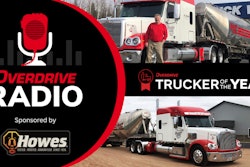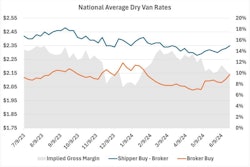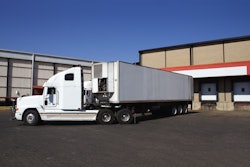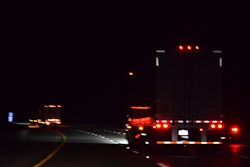Truckstop, among the biggest load boards in the U.S., has conducted significant layoffs of North American staff and seeks to outsource all customer service roles to a partner company, Firstsource, as the load board undergoes major changes.
That's according to three laid-off company insiders, one of whom remains with the company during the transition. The sources wanted to remain anonymous to protect their employment prospects. All say that customer service staff, from the main line to fraud-fighting, have been laid off over the last year and the remaining staff are training new workers, some based in overseas locations such as India and the Philippines.
Customer impact, though, will be largely to the positive, according to company CEO Kendra Trucker, if intentions come to fruition. A new carrier-facing support team, she noted, will be centralized in a Texas-based office managed by the Firstsource company with Truckstop oversight, while broker-facing and internal support will be based overseas.
Asked what the move might mean to trucking customers of the company, Truckstop offered this statement:
As a premier and trusted SaaS provider to the freight transportation community, our customers are at the forefront of everything we do. Truckstop is a growth company. Growth requires continuous improvement, evolution, and change. As we grow, we consistently pursue new ways to better serve our customers. Truckstop continues to build on our momentum, investing in areas of the business poised for even greater success. Truckstop’s recent actions underscore our dedication to maximizing value for our customers as we:
- Improve our customer service response times
- Expand our support and service hours
- Adjust swiftly to increases in customer demand
Truckstop's layoffs accompanied a restructuring the company acknowledged in March of 2023, not disclosing the number of employees terminated. Current CEO Tucker did make a short comment after the round of layoffs in March of 2023. Tucker joined Truckstop's C-suite in 2020 as Chief Revenue Officer, and within two years took over the CEO role from Paris Cole. After the initial statement above, Tucker spoke with Overdrive about what customers can expect from service changes at the company.

CEO Tucker: Carrier support centralizing in Texas, broker support overseas
Tucker did not share some of the company insiders' worry over the outsourcing and customer service staff restructuring, saying that the partner company would be closely managed by U.S.-based Truckstop teams, and mostly impact internal, not customer-facing operations.
At once, "the partnership that we’ve set up," she said, "is focused on three types of services: services that support the carrier, services that support the broker, and that support internal operations for" Truckstop. As noted above, the new team of employees of the outsourcing company that will "directly support the carrier" will be headquartered in Dallas, Texas, while broker customer support lines and various internal support will be largely overseas.
"One of the good things" about the partnership's new Dallas office, managed by the outsourcing company with a Truckstop-dedicated team there, is that it "brings us closer to the customer, geographically," Tucker said. She noted that, currently, Truckstop staff works around the country, but primarily in Idaho.
Some other carrier-/broker-customer-facing support people, like those dedicated to managing specific accounts, were "not impacted" by layoffs or outsourcing, Tucker said.
"We’re primarily talking about operations functions" getting outsourced, she added. Truckstop now manages the roles that did get outsourced "with an incredibly close relationship" to the outsourcing company, including "senior level management that trains the support teams and are still managed by Truckstop."
Truckstop isn't alone in cutting headcount among freight logistics companies. Broker C.H. Robinson last quarter cut 11.9% of staff, according to its latest earnings report. Coyote, Uber Freight and plenty of other brokers have reduced workforce over the last two years, all citing the rough rates and costs environment.
Increasingly, top brands in the logistics space turn to tech to cut costs, also impacting customer service interactions with carriers and presenting difficult choices for leaders shaping the future of trucking.
There stands to be some degree of increased automation of support services at Truckstop with the new partnership, drawing on the outsourcing company's expertise, Tucker said. Largely that takes the form of using background processes in advance of a customer service rep speaking to a caller seeking live support.
"We do have tech that automates part of customer support today," said Tucker, but she stressed that was not the "core capability" of Truckstop. "We’re at the core about helping truckers and brokers connect on freight." Summarizing the types of decisions she faces at Truckstop, she added that the freight platform best served its purpose by focusing its efforts on creating efficient operations rather than investing in customer service technologies themselves.
"I could take resources and continue to invest more and more capability into [customer] support tech," she said, or: "build technology to support freight matching" for carriers and brokers. The outsourcing company can work "professionally" and "to the benefit of our customers," she said. "Carriers do value speaking with someone that is a part of our team." The outsourcing partnership, aided and abetted by technology, she said, would make Truckstop carrier reps "more efficient, with more knowledge."
This could help "reduce wait times" and call times, she said, by delivering information to the rep about the caller. "I know our customers don’t want to be talking to chatbots."
[Related: 'Hey shippers, we're out here': Small fleet owner resolved to sharpen biz on long haul for change]
A chance to 'root out fraud'
As for how many people are employed by Truckstop now, the company "does not disclose company headcount or staffing trends," said a spokesperson, and it's "important to note that we continue to hire key roles that will help deliver more customer value."
Truckstop's LinkedIn profile shows 13 job postings, mostly for senior- and executive-level staff, with a few hourly positions open for business development roles within its RMIS service and one to work in factoring.
The March 2023 layoffs "came out of the blue," a company insider said. Over the course of the next year, also according to insiders, further rounds of layoffs happened, impacting additional longtime Truckstop staffers.
One insider still with the company said the departments outsourced include parts of the Assurance department, which handles reports of double brokering, cargo theft and other fraud. That department was discussed in the story at this link with Truckstop Chief Relationship Officer Brent Hutto earlier this year.
Also outsourced, according to the insiders:
- The verification team, which verifies carriers as legitimate and displays a verified ID tag next to the carrier or broker's name
- RMIS data operations, which Truckstop offers to brokers to help monitor carrier authority status.
- ITS, dedicated to Truckstop's Transportation Management System (TMS) software.
Tucker noted a lot of these services include "behind the scenes" work -- like "verifying the ID of a carrier through onboarding and compliance and validating identities and insurance" -- that has "minimal direct customer interactions. They’re services for internal operations."
With even domestic trucking experts struggling to rein in the fraud problem in the freight markets, which often targets freight advertised on load boards and in brokerage and other freight platforms, insiders expressed doubt these changes at Truckstop would help matters.
[Related: 'Fraud apocalypse': Brokers circling the wagons, shutting carriers out of freight]
Yet Tucker underscored that "not all of these services will move into overseas locations or move into the hands of" the outsourcing company partner. The overseas workers "are not the people who are designing the systems that remove fraud from Truckstop. ... Rather, we’re choosing to partner with someone exceptional at back-office services so that we can invest better in tech to match freight, root out fraud," and perform other services "core to Truckstop."
One Truckstop carrier customer told Overdrive about his own experience with the board's customer service over the last year, as automated responses misunderstood his problem repeatedly, eventually leading him to drop his subscription.
At once, "they certainly appear to care more about fraud" than most freight platforms, the carrier added. "They're in such a solid position to [combat the fraud problem] but just don't seem to have the right people in place to make it happen."
Overdrive reported in February on the steps Truckstop has taken to combat fraud, including multi-factor authentication and a photo verification system. --Todd Dills contributed to this report.
[Related: Freight fraud, double brokering skyrocket: What are the load boards doing about it?]










